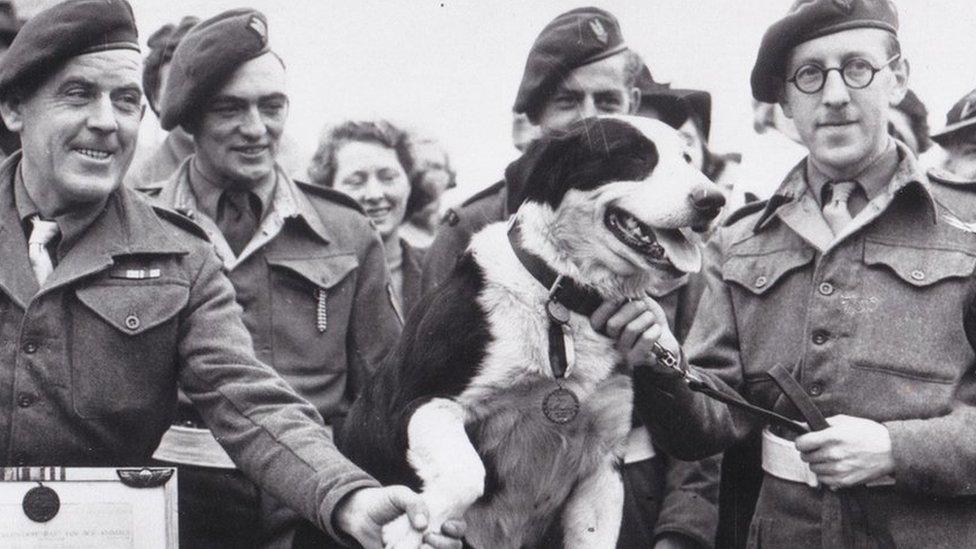Heroic D-Day pigeon from Portsmouth remembered on Dickin Medal 80th anniversary
- Published
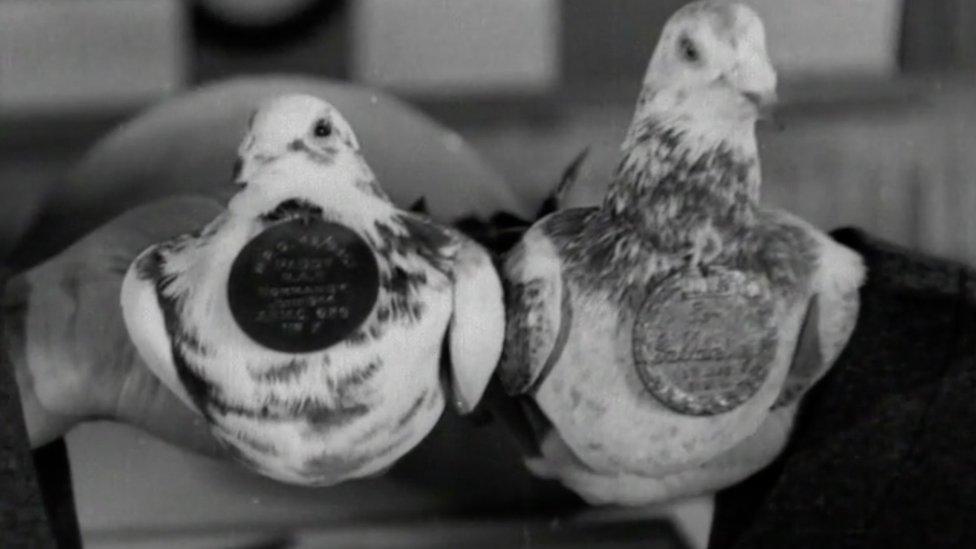
Gustav (right) was awarded his medal in a ceremony in November 1944
A pigeon that flew the first message back on D-Day has been remembered 80 years after service animals were first officially honoured in Britain.
Gustav, from Portsmouth, flew over 150 miles (240km) in five hours and 16 minutes from the shores of Normandy to his wartime base on Thorney Island.
He received the animal equivalent of the Victoria Cross, the Dickin Medal.
It was first given on 2 December 1943 by the People's Dispensary for Sick Animals (PDSA) founder Maria Dickin.
Each medallion bears the words "For Gallantry" and "We Also Serve" within a laurel wreath.
Bred in Cosham by trainer Frederick Jackson, Gustav was the first Dickin Medal recipient from Hampshire.
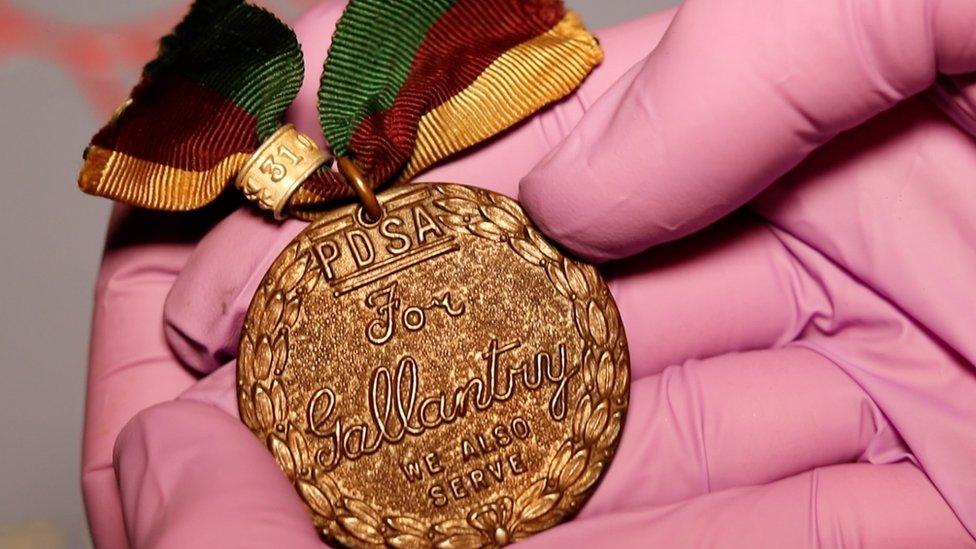
Each medallion bears the words "For Gallantry" and "We Also Serve" within a laurel wreath
In 1938, Mr Jackson and many other pigeon owners across the country formed the National Pigeon Service (NPS), a volunteer civilian organisation which provided messenger birds for the war.
His granddaughter Carolyn Mason, from Portsmouth, said her grandfather was given pigeons for company after he was widowed at 39 years old.
She said "his life was his pigeons" and he would have been so proud that Gustav and his medal were still remembered.
Ms Mason said: "His brother gave him a pair of pigeons and that started him off.
"He loaned Gustav to the Royal Air Force when he was a six-week-old chick."
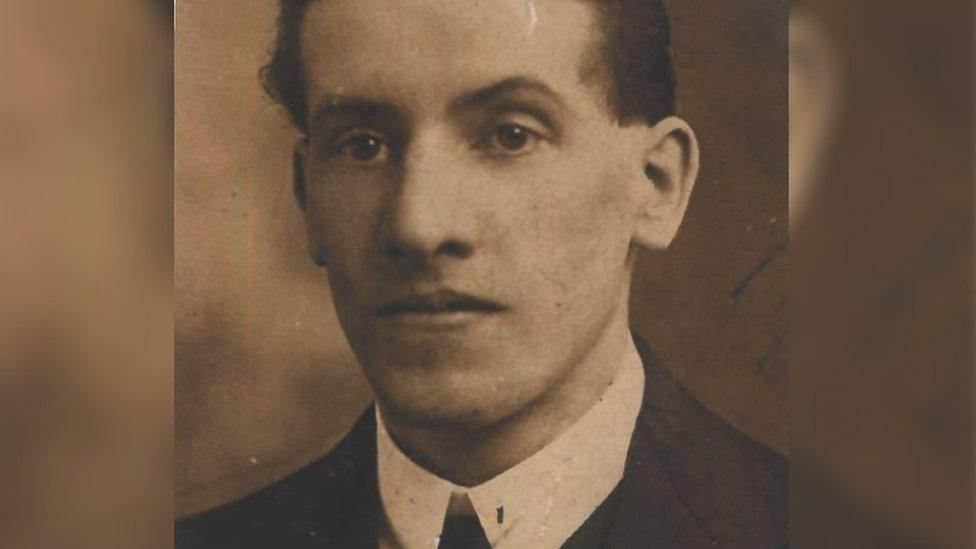
Frederick Jackson loaned his pigeon Gustav to the Royal Air Force
The young pigeon was trained by Sgt Harry Halsey at the RAF base on Thorney Island.
D-Day was not Gustav's first mission, but it was the one that earned him his medal.
Ms Mason inherited the medal and loaned it to the D-Day Story Museum in Southsea, where it can still be viewed.

Gustav's D-Day story
It was morning on the sixth of June, 1944.
Gustav was with Montague Taylor, a journalist for Reuters, who attached a pen-lid sized capsule, with a message inside, to the pigeon's leg.
Despite the poor weather conditions, he flew into a headwind, from just off the coast of Nazi-occupied France, across the English Channel and back to his home.
The message from Mr Taylor read: "We are just 20 miles or so off the beaches.
"First assault troops landed 0750. Signal says no interference from enemy gunfire on beach.
"Steaming steadily in formation. Lightnings, Typhoons, Fortresses crossing since 0545.
"No enemy aircraft seen."

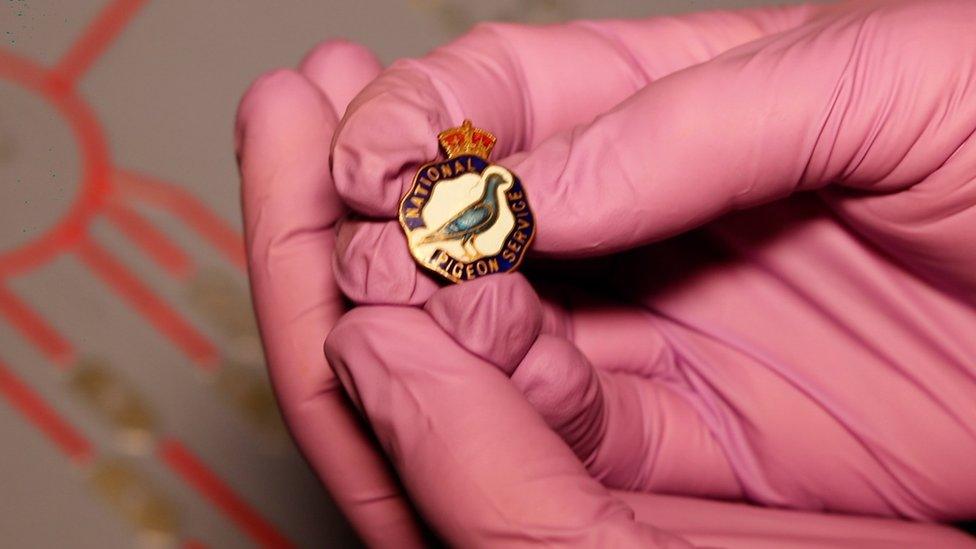
In 1938, Mr Jackson and many other pigeon owners across the country formed the National Pigeon Service
Andrew Whitmarsh, curator at the D-Day Story museum in Southsea, said: "There was radio silence for security reasons, so Gustav's message was the first news of D-Day that arrived back in the UK.
"By June 1944 everyone knew that D-Day was coming, so it was no secret.
"Most of the population of Britain and many other allied countries were pent up waiting for the news of when D-Day was going to happen and so when the news broke it was a really important symbolic moment."
Gustav was awarded his medal by Mrs A. V. Alexander, wife of the First Lord of the Admiralty and Wing Commander Rayner, in a ceremony in November 1944.
The veteran pigeon retired after the war and nested back at his home in Cosham.
More than 200,000 young birds were given to the NPS throughout World War Two - many of whom did not survive.
The PDSA, founded by Maria Dickin in 1917, provides veterinary care for people in financial hardship and today has 48 hospitals across the country.
The animal campaigner went on to form the PDSA Dickin Medal, to recognise animals that served in conflict.
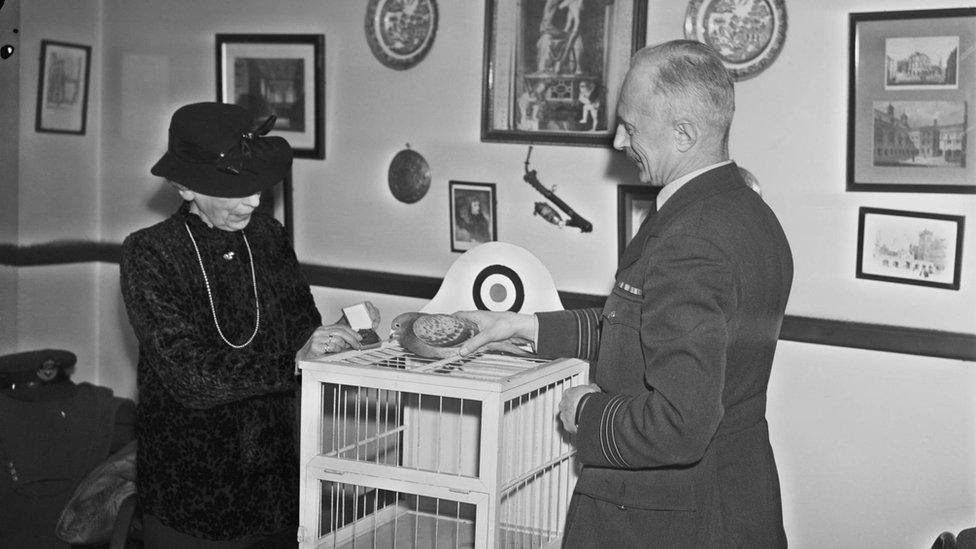
Maria Dickin formed the PDSA Dickin Medal, to recognise animals that served in conflict
"She was a formidable lady" says Jan McLoughlin, PDSA Director General.
Ms McLoughlin said: "Maria worked with the home office and the imperial war museum to make the Dickin medal a formal medal.
"Wars have carried on around the world in some of the darkest moments and deadliest warzones throughout history and so we have continued, since 1943, to honour those animals who served in military conflict."
Only 75 animals have received the medal since its formation and Ms McLoughlin added: "It meant a lot to her to raise the status of animals in society.
"She felt that if people better understood the role that they played then they would be better cared for.
"We're proud and very honoured to present this and to remember all of the animals that served over the last 80 years."

Follow BBC South on Facebook, external, X, external, or Instagram, external. Send your story ideas to south.newsonline@bbc.co.uk, external.
Related topics
- Published10 November 2023
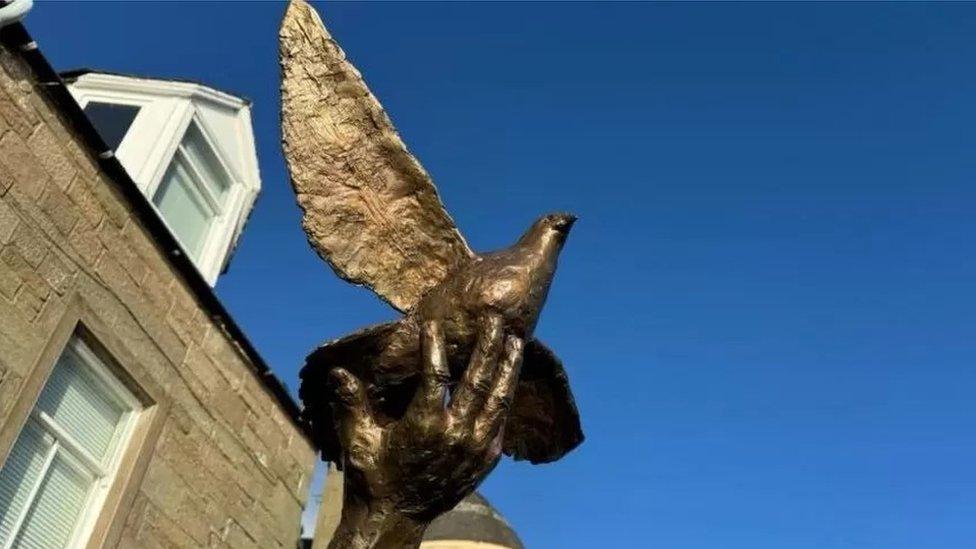
- Published11 November 2022
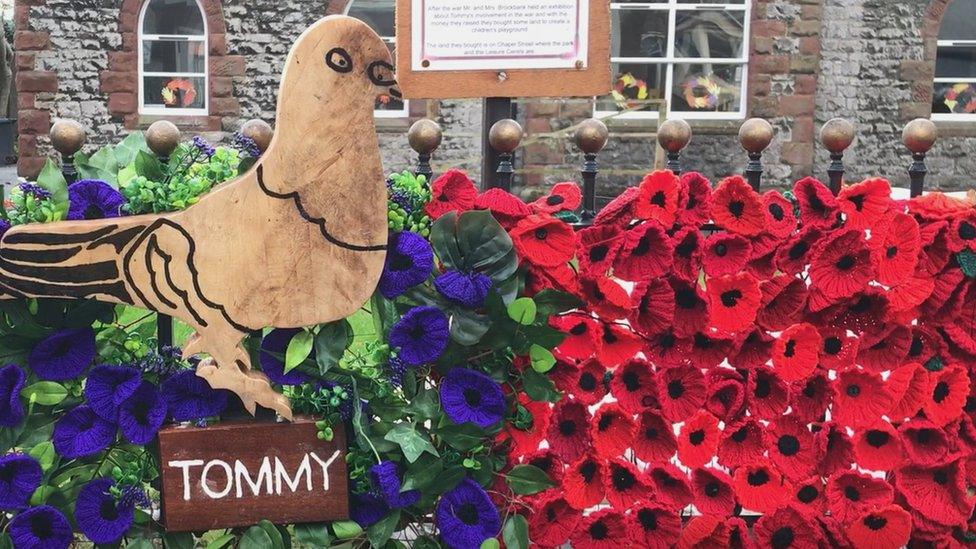
- Published13 October 2022
